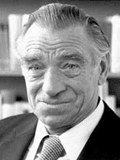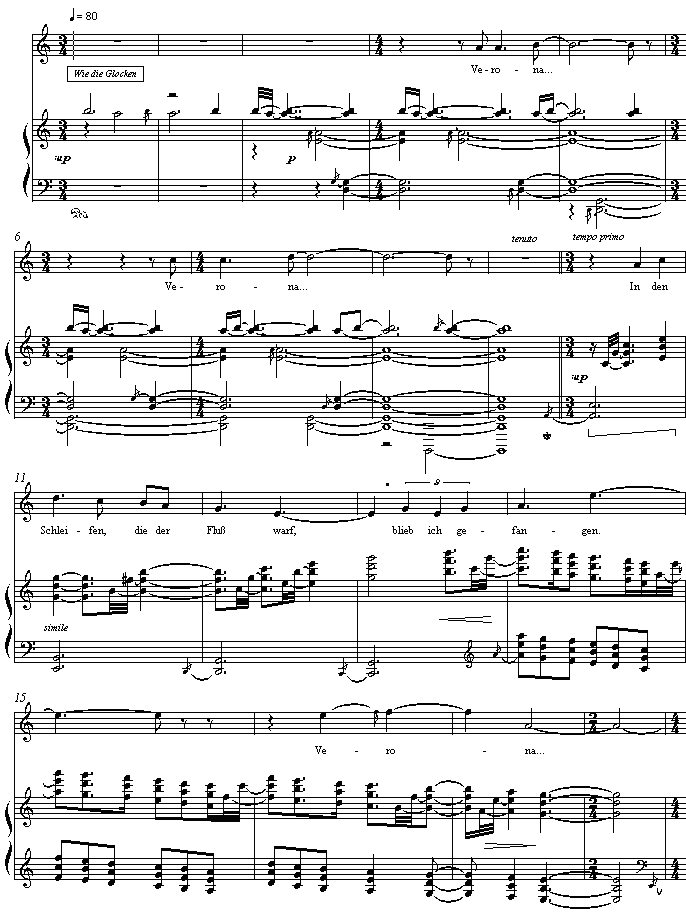Music and Texts of GARY BACHLUND
Vocal Music | Piano | Organ | Chamber Music | Orchestral | Articles and Commentary | Poems and Stories | Miscellany | FAQs
Verona - (2004)
Rudolf Hagelstange
for high voice and piano
In den Schleifen, die der Fluß warf,
blieb ich gefangen.
Über die Brücken, die ihn queren,
bin ich wieder gegangen.
Auf den Plätzen, die das Licht traf,
hab ich gesessen,
von dem Brote, das sie dort backen,
wieder gegessen.
Habe getrunken, wie damals
von ihrem Weine,
sah von Hügel die Stadt in
wechselndem Scheine.
Bedachte mein Leben und sah es
am Feigenbaumstamme
züngeln und wollte es wiedererwecken
zu lodernder Flamme.
Aber die Winde hatten gewechselt,
gewechselt die Stunden.
Eidechsen huschten wie sie. Was ich suchte,
habe ich nicht mehr gefunden.
Doch bin ich über unzerstörbare
Brücken gegangen,
und in Schleifen, die kein Fluß wirft,
blieb ich gefangen.[ 7 pages, circa 4'15" ]
Verona
In the curves which the river has bent I remain enthralled.
Over the bridges which cross it I have gone.
In the piazzas which the light finds I have sat,
and of the bread that is baked there eaten again.
I have drunk in that time of the wine
and seen from the hill the city in the changing light.
I have reflected on my life and seen it flicker on the fig trees
and seen it awaken to blazing flame.
But the wind had changed, and with it the hours.
Lizards move quickly too. What I sought I did not again find.
Ah, I have gone over unbroken bridges,
and in curves which no river could create I remain imprisoned.

Rudolf Hagelstange
On 14 January 1912, Rudolf Hagelstange was born in Nordhausen, Germany, the son of a businessman. After studies there and in Berlin (from 1931-1933), he worked for the Nordhäuser Zeitung, and eventually during the war for military newspapers. In November 1944 he wrote his last sonnetts, the Venezianischen Credos which were printed secretly during the war. In his poetry he sought a spiritual rejuvenation of his shattered world within the framework of a Christian humanist outlook. He also wrote novels, notably Spielball der Götter (1959) and Das Haus oder Balsers Aufstieg (1981), as well as travel books about the USA, Russia, and Italy. As chairman of the Bundesverband Deutscher Schriftsteller he was instrumental in gaining social security for writers.
Having performed Tristan in Verona and enjoyed that remarkable city for weeks on end, I too have gone "over the bridges" and "seen from the hill the city in the changing light." This charming poem captures a common experience between us, the goal of poetry. That time offered the chance to compose the "Songs of War" cycle for baritone and a setting of Frances Ginzer's poem, "In My Grave," also written at that time in Verona. The opening gesture is a musical memory of some of the bells which one heard so often while taking coffee on the piazza.
